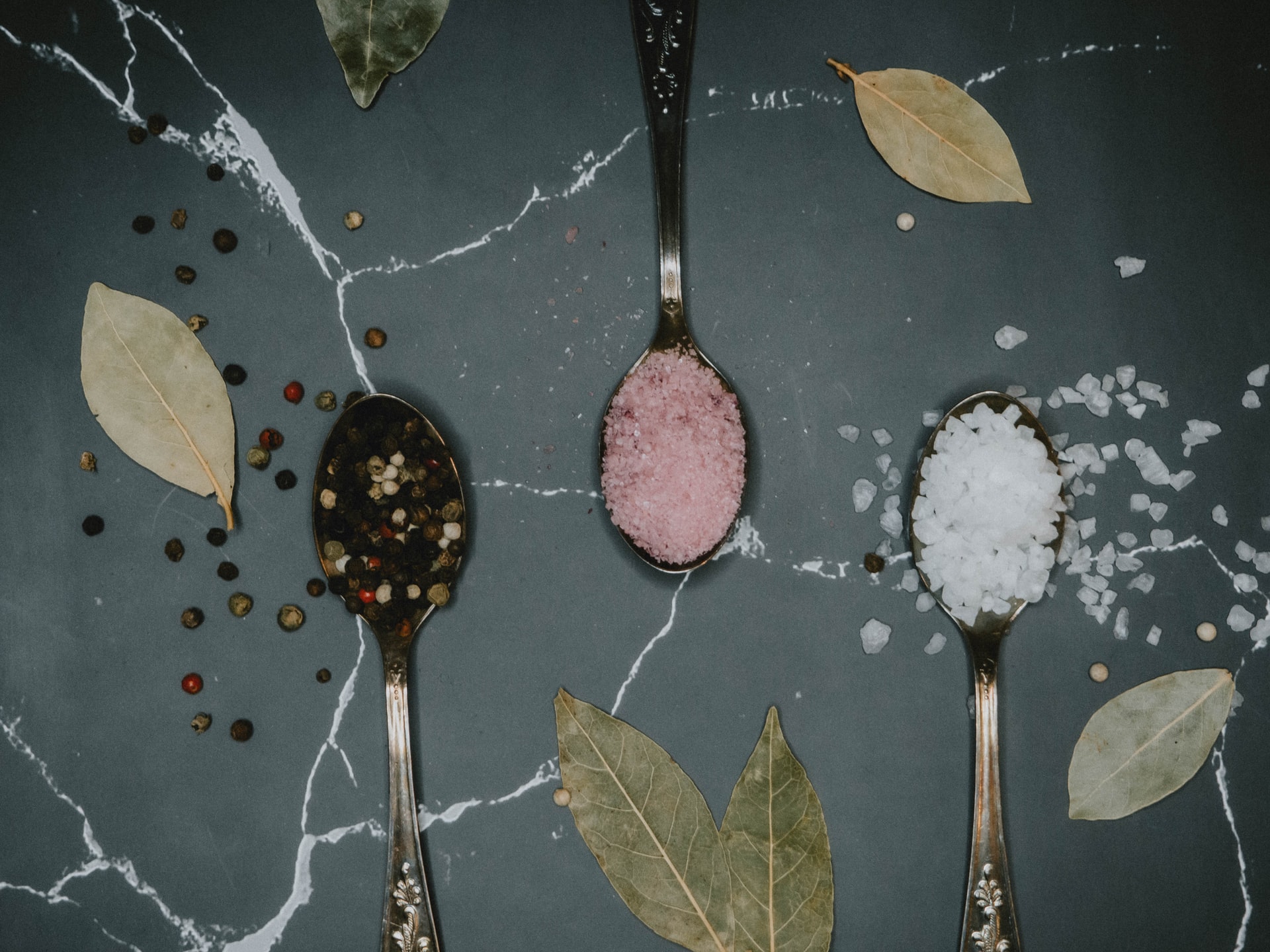Tonsil stones can be unsightly, cause bad breath and are challenging to treat once they start. Gargling is an effective way to prevent the build-up of food particles, saliva, and mucus that become lodged in your tonsil crevices. However, specialized mouthwashes are often expensive, making you wonder if you could make a home remedy for the condition.
You can make your own tonsil stone gargle for fresh breath at home with some simple ingredients. Baking soda, salt water, honey, and apple cider vinegar all have antimicrobial qualities and inhibit the bacteria that cause bad breath. Gargling also dislodges the particles that create tonsil stones.
Regular gargling helps keep your tonsils and throat hydrated and may wash out the particles that cause tonsil stones in the first place. They may also prevent bacterial buildup responsible for oral malodor. Here are some home recipes for gargles that may help your tonsil stones and freshen your breath.
Apple Cider Vinegar Mouth Gargle for Tonsil Stones
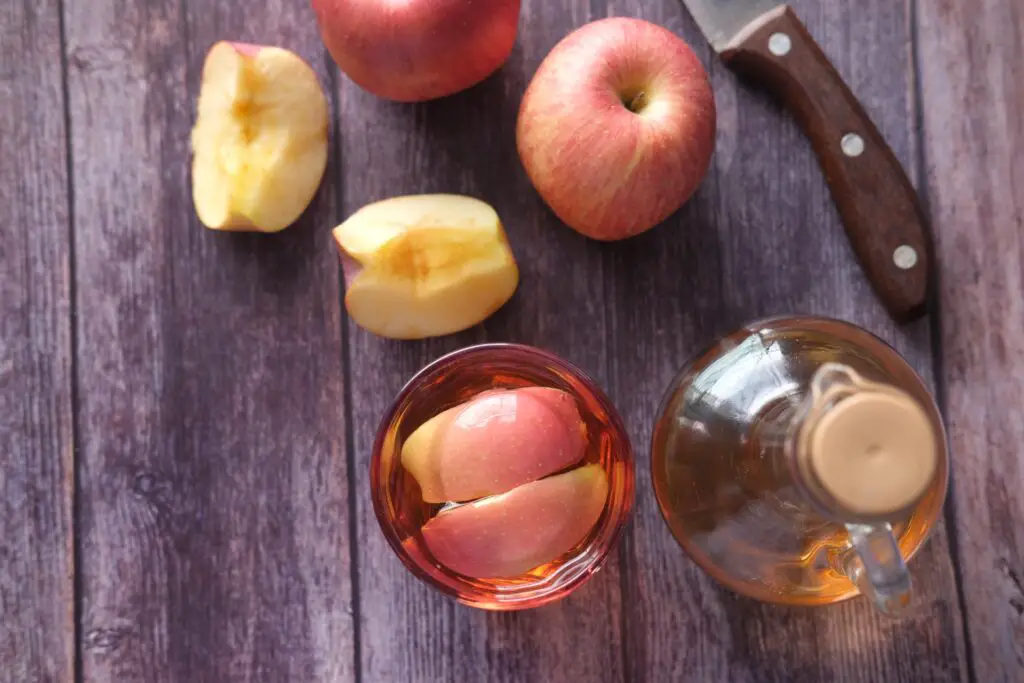
Apple cider vinegar (ACV) has long been known for its curative properties and is mentioned in the Old Testament. Hippocrates promoted apple cider vinegar and honey to fight infections and even protect open wounds on the skin. This ancient knowledge is supported by modern clinical studies today .
.
Researchers have found that the persistence and recurrence of tonsilloliths are because the tonsil stone is not an inert mass but a living biofilm. Biofilms are communities of microorganisms that attach themselves (in this case) to the tonsils. They then create a barrier of sorts that protects them from host defenses and makes ideal conditions for reproduction.
Biofilms are notoriously difficult to treat due to their adaptive resistance to medicinal treatments. Viral infections often resist antibiotics, which are ineffective in permeating the biofilm defenses. ACV shows that it can disrupt biofilms development and associated harmful bacterial activity.
Apple cider vinegar effectively destroys the resistant outer layer of the biofilms that harbor pathogenic bacteria harmful to oral health. ACV also reduces bacterial activity, and clinical studies show that within 30 minutes of gargling, the total bacterial activity is significantly reduced in the saliva.
that within 30 minutes of gargling, the total bacterial activity is significantly reduced in the saliva.
Apple Cider Mouth Gargle Recipe
- Boil water and let it cool.
- Add 1 tablespoon (15 ml) of apple cider vinegar to a cup (250 ml) of the warm (not hot) boiled water.
- Gargle for 20-30 seconds, ensuring that the ACV mix reaches the back of your throat.
- Repeat two to three times a day for best effects
 .
.
Salt Water Gargle for Tonsil Stones
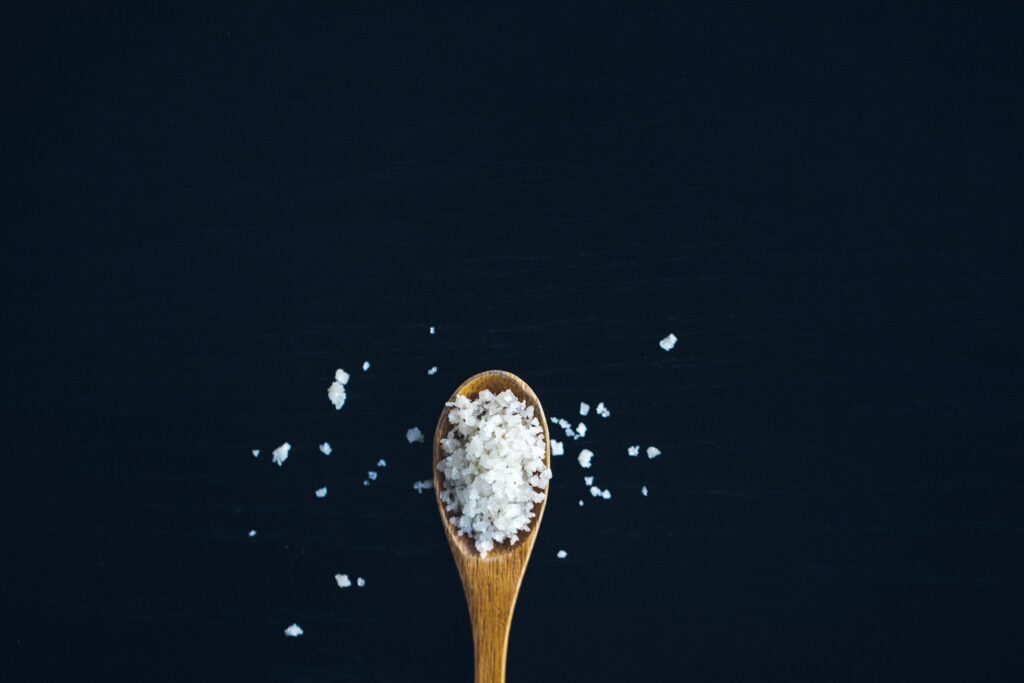
Saltwater gargles are not only freely available in most homes but are also gentle on the mouth and the good bacteria that exist in your oral cavity. Often the chemicals in mouthwashes eradicate the good bacteria along with the bad, reducing the efficacy of your mouth’s natural defenses to harmful bacteria.
Saltwater is one of the oldest recorded medicines for infections and wounds and is even mentioned in Ancient Egyptian medicine prescriptions . Salt plays a vital role in our bodies and is in our blood, sweat, and tears. Both our eyes and our skin protect us from infectious disease via the antibacterial effect of salt.
. Salt plays a vital role in our bodies and is in our blood, sweat, and tears. Both our eyes and our skin protect us from infectious disease via the antibacterial effect of salt.
In a clinical study, scientists measured the effects of a saltwater mouth rinse in comparison with a chlorhexidine-based mouthwash (a common antibacterial ingredient in over-the-counter mouthwashes.) In a five-day trial, they found that saltwater was as effective as a chlorhexidine-based mouth rinse in reducing dental plaque .
.
However, chlorhexidine is a more effective antibacterial as it kills bacteria outright, while salt has a more bactericidal function in that it inhibits bacterial growth. Saltwater also increases alkalinity in the pH of the mouth, inhibiting bacterial growth .
.
Salt Water Gargle Recipe for Tonsil Stones
- Boil water and let it cool slightly to a warm temperature.
- Dissolve one teaspoon (5.7 g) of salt in a cup (236 ml) of water.
- Take a mouthful of the saltwater solution and gargle for 15-20 seconds, ensuring that you reach the back of your throat.
- Spit out the solution.
- Repeat twice a day before or after brushing your teeth.
Honey Gargle for Tonsil Stones
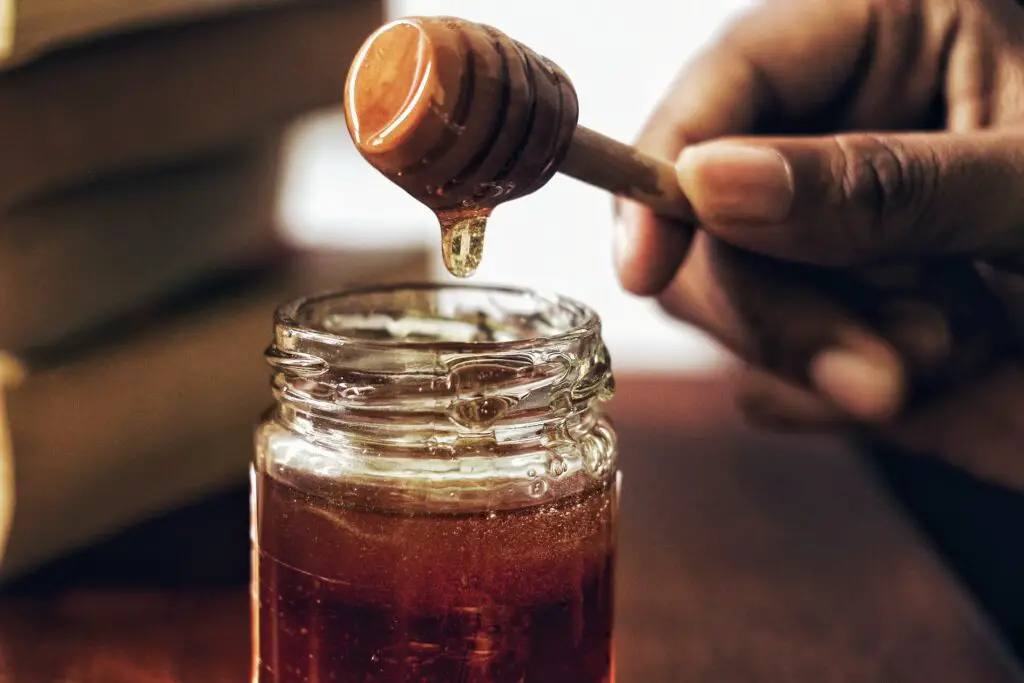
Honey is an ancient remedy that has been used as food and medicine for over 8000 years . Modern research has shown the broad-spectrum antibacterial qualities of honey against pathogenic bacteria, including those found in the mouth.
. Modern research has shown the broad-spectrum antibacterial qualities of honey against pathogenic bacteria, including those found in the mouth.
Honey has an inhibitory effect on almost 60 species of bacteria and is called hygroscopic , which means that it draws moisture from the environment and dehydrates bacteria. Honey’s high sugar content and relatively low pH inhibits microbial growth in the mouth.
, which means that it draws moisture from the environment and dehydrates bacteria. Honey’s high sugar content and relatively low pH inhibits microbial growth in the mouth.
Honey also contains an enzyme that produces natural hydrogen peroxide, a powerful antibacterial often used by dentists. However, many store-bought kinds of honey are not pure honey and don’t have natural honey’s buffering ability. Low-grade syrups included in honey products may increase the likelihood of tonsil stone by increasing bacterial activity. Raw honey has the best nutritional benefits and positive effects on oral health.
Honey Gargle Recipe for Tonsil Stones
- Boil water and allow it to cool to a warm temperature. You may also make a tea base for this recipe.
- Add two tablespoons (30 ml) of pure organic honey and dissolve it in the water.
- Gargle with the solution for 15 to 20 seconds, ensuring you reach the back of your throat.
- Repeat twice daily for best results.
Baking Soda Gargle for Tonsil Stones
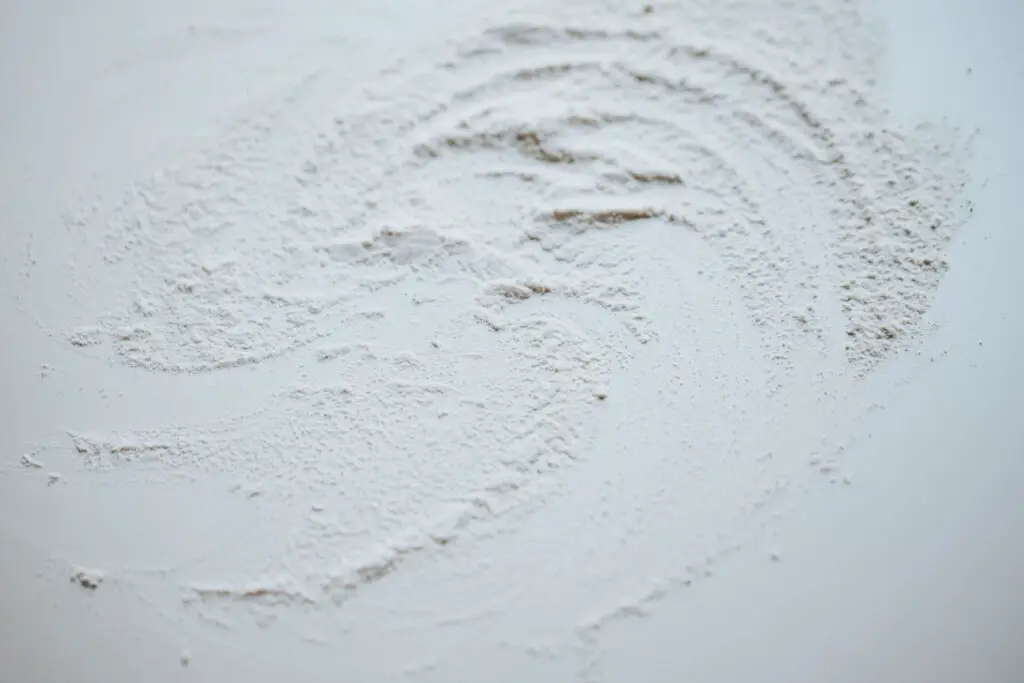
Baking soda or sodium bicarbonate is a safe and effective alternative to chlorhexidine and alcohol-based mouthwashes. In a clinical study, sodium bicarbonate mouth rinses showed a decreased bacterial count and an increase in salivary pH.
Sodium bicarbonate in mouth rinses increases the buffering capacity of saliva against acids and reduces bacterial activity by increasing mouth alkalinity . In the same way that sodium bicarbonate works in antiperspirants, sodium bicarbonate also inhibits the bacterial activity that causes bad breath.
. In the same way that sodium bicarbonate works in antiperspirants, sodium bicarbonate also inhibits the bacterial activity that causes bad breath.
Dry mouth and poor oral hygiene promote bacterial growth and the volatile sulfur compounds that cause bad breath . Sodium bicarbonate changes these volatile compounds to a non-volatile state, improving the breath of those who suffer from tonsil stones.
. Sodium bicarbonate changes these volatile compounds to a non-volatile state, improving the breath of those who suffer from tonsil stones.
Baking Soda Gargle Recipe for Tonsil Stones
Baking soda works best in conjunction with salt to prevent tonsil stone formation and freshen your breath. The recipe is as follows:
is as follows:
- Boil water and let it stand until it is warm.
- Mix ¼ teaspoon (1.42 g) of baking soda and ⅛ teaspoon (0.75 g) of salt and let them dissolve.
- Take a mouthful and gargle for 15-20 seconds, making sure you reach the back of the throat. Spit out the solution when you finish.
- Perform twice to three times daily.
Why Do Tonsil Stones Cause Bad Breath?
Tonsil stones occur when oral debris such as food particles, dead cells, saliva, and mucus collects in the tonsillar crypts or crevices. Bacterial action on the lodged particles hardens the deposit over time and provides for the emergence of a living biofilm .
.
Biofilms are a community of microorganisms that attach themselves (in this case) to the tonsils and form a community. The community creates a barrier of protection against both the host defenses and external effects such as antibiotics.
The bacteria that live in your tonsils break down food particles and proteins and release volatile sulfur compounds with a characteristic bad odor. This bacterial process is the main reason tonsil stores are associated with halitosis or chronic bad breath.
Do Gargles Work for Tonsil Stones and Bad Breath?
Gargling is highly effective at preventing tonsil stones as it may dislodge food and particles in the tonsil crypts before they attract bacteria and become calcified. Because bacteria are behind the bad smell of tonsil stones, your home gargle should kill or inhibit bacterial growth.
Certain mouthwashes have active ingredients that kill bacteria such as chlorhexidine and inhibit the build-up of tonsil stone-forming biofilms. However, specialized gargles are pretty expensive and may have certain side effects. Many antibacterial types of mouthwash destroy the good bacteria in your mouth along with the bad, disturbing oral health.
If your tonsil stones are moderate and do not cause you pain, you may try some home remedies to clear your tonsils and freshen your breath.
Final Thoughts
You need not spend a fortune on fancy mouthwashes if you wish to treat or prevent tonsil stones. You can make your own gargle at home with these simple ingredients to reduce bacterial action that leads to tonsil stones and bad breath.
If your tonsils are inflamed, or cause you pain, seek medical advice before you attempt to treat yourself at home.
I also have other recipes for making your own tonsil stone dissolver at home, including how to use hydrogen peroxide safely.


